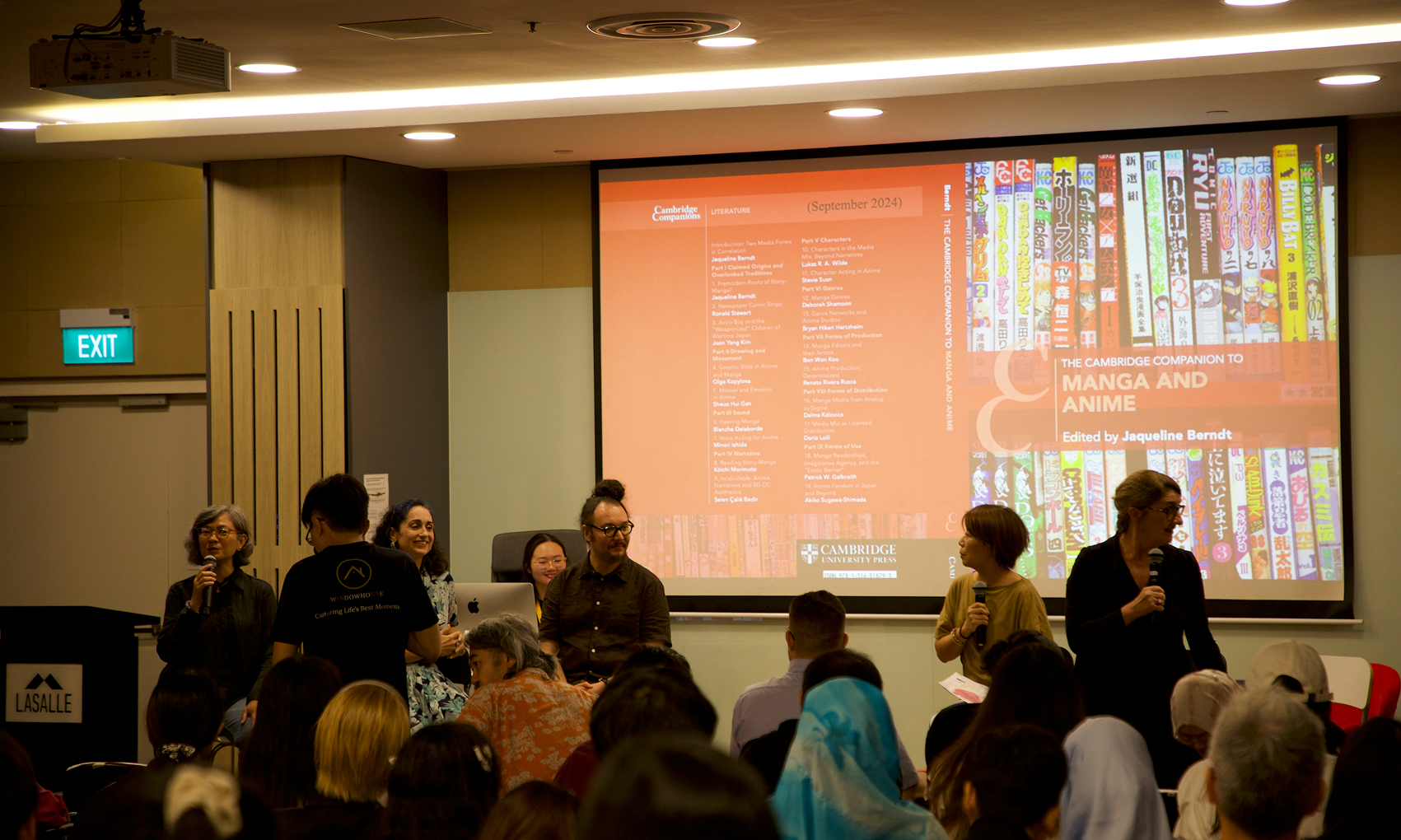Journal and book publications
Performative Disciplinarity in Alternate Reality Games from Foucault to McKenzie and Beyond
For Foucault, discipline was a subtle form of power that coerced the body in order to control its movements, attitudes, and moods. For McKenzie, it is oppressive-excessive performance that takes the place of overt disciplinarity in the twenty-first century. By situating alternate reality games (games that transcend the spatio-temporal delimitation of the “magic circle”) within the discourse of positive and negative freedom, Lushetich queries the capacity of existential amplification (found in all forms of performance and play) to reaffirm corporeally the (neoliberal brand of) negative freedom through what may be termed “ludic servitude”.
Citation:
Lushetich, Natasha. "Performative Disciplinarity in Alternate Reality Games from Foucault to McKenzie and Beyond." Inter Views in Performance Philosophy, edited by Anna Street et al., Palgrave Macmillan, 2017, pp. 107-116.
The Art of Being Elsewhere: Neoliberal Institutions of Care
The being of human beings and, in particular, their wellbeing is profoundly spatial and temporal. We feel well in dramaturgically stimulating, sheltered, yet expansive spaces that lend themselves to daydreaming, much like we feel well in “thick” time that, like a complex melody, textures our existence aurally, kinesthetically, and propriocentrically (influencing our body’s sense of balance). This existential relation is created through movement, sound, language, chronotypes, physical and symbolic objects, all of which weave bio-social matrixes, micro-cultural landscapes, even individual inscapes – internalized terrains of symbolic meaning. This essay offers a socio- phenomenological account of a medium-security forensic service unit River House, part of the Bethlem Royal hospital, a psychiatric hospital located in Bromley, south London. Its aim is to articulate the interdependence of practice, space, and inscape, while simultaneously shedding light on a very particular, emergent form of existential vulnerability caused by the increasing precarization, the reponsibilization of the individual, and the culture of blame.
Citation:
Lushetich, Natasha. "The Art of Being Elsewhere: Neoliberal Institutions of Care." The Journal of Somaesthetics, vol. 3, no. 1&2, 2017, pp. 68-92
Idiosyncrasy as Strategy in the Age of Epistemic Violence
One of the first principles of capitalism is, undeniably, instrumentalisation; the subjection of one thing to another with the speculative aim of producing some future ‘value’, regardless of how dubious – or even noxious this ‘value’ may be. In the knowledge economy, which produces value from accelerated innovation (also interpretable as the overproduction of the minimally different) value is extracted in two chief ways: via the misplaced rhetoric of excellence, and via netocratic quantification. Both of these processes are further aggravated by the additive nature of the digital media (Han); the irrationality of rationality (Ritzer); and attention deficit. Despite the fact that knowledge in general, and artistic knowledge in particular, is heterogeneous as well as, essentially, undecidable, in this essay I argue for a specific brand of knowledge: idiosyncratic, and, if need be, incomprehensible. Not as a weak ‘I would rather not’ strategy of resistance – to borrow from Herman Melville’s over-exploited, half-dead anti-hero Bartleby – but as an antidote to reductionism, information deluge, and their increasing neurological consequences, such as Information Fatigue Syndrome.
Citation:
Lushetich, Natasha. "Idiosyncrasy as Strategy in the Age of Epistemic Violence." Artnodes Journal of Art, Science and Technology, no. 20, 2017, doi:10.7238/artnodes.v0i20.3149.
Design IP Legislation in the UK – an Opportunity to Innovate?
This paper constitutes a critical and detailed review of an investigation into design right infringement in the UK. The original mixed-method study was commissioned by the UK IPO in 2015/2016 and led by the author throughout the first three of four project stages. This paper focuses specifically on the results obtained in relation to registered design right infringement. The paper comprises the following points: A discussion of older studies in the area; An outline of the research methodology deployed for the design right infringement survey; A discussion and analysis of key research findings. The conclusions drawn provide insight not only into how design rights are used and enforced in the UK. They also help to establish clarity about the level of robustness of design-related IP options. The paper provides orientation to designers and design IP stakeholders. It culminates in a range of ideas of how the IP system surrounding designs can be enhanced in the UK and in comparable countries.
Citation:
Hillner, Matthias. "Design IP Legislation in the UK - an Opportunity to Innovate?" Conference proceedings of the Design Management Academy, vol. X, 2017, pp. 563-593, doi:10.21606/dma.2017.46.








